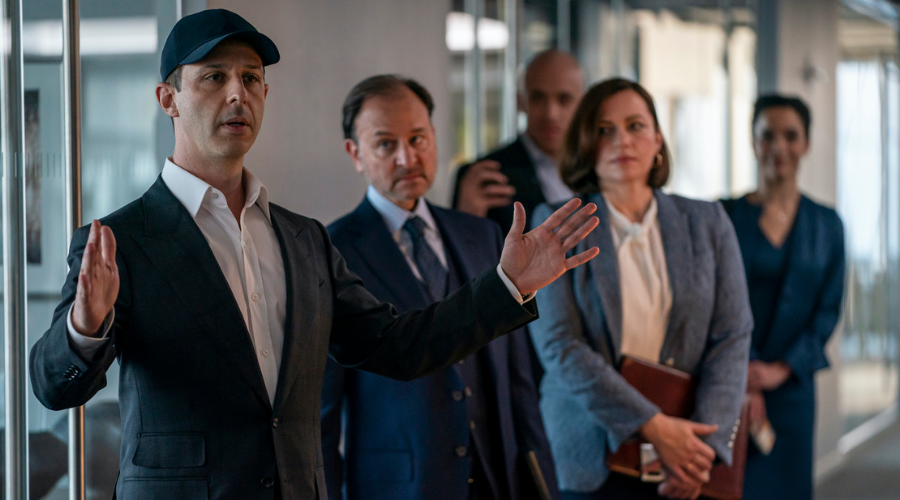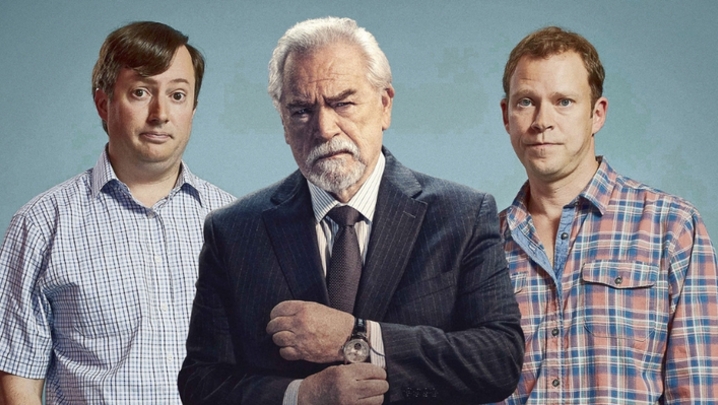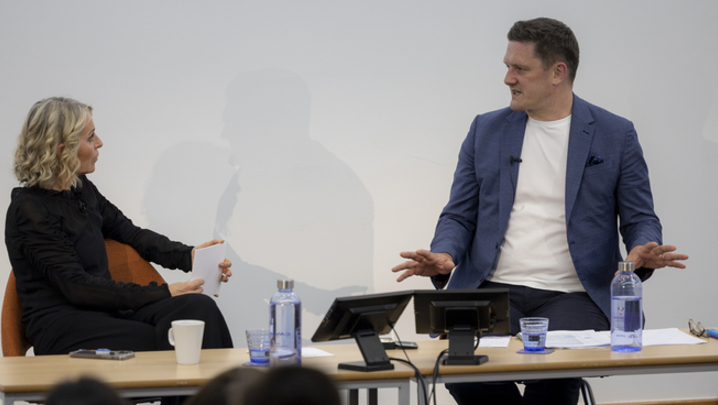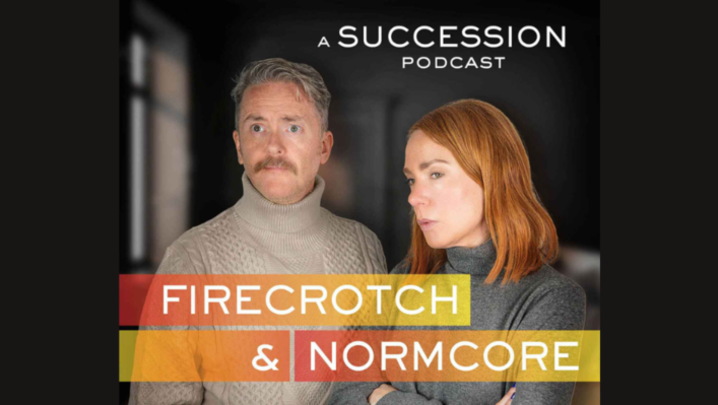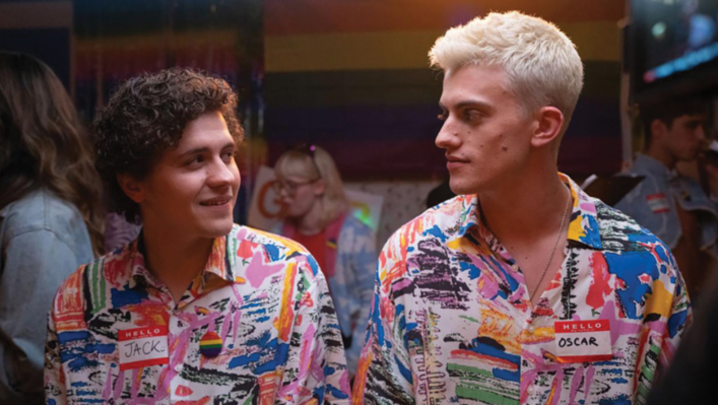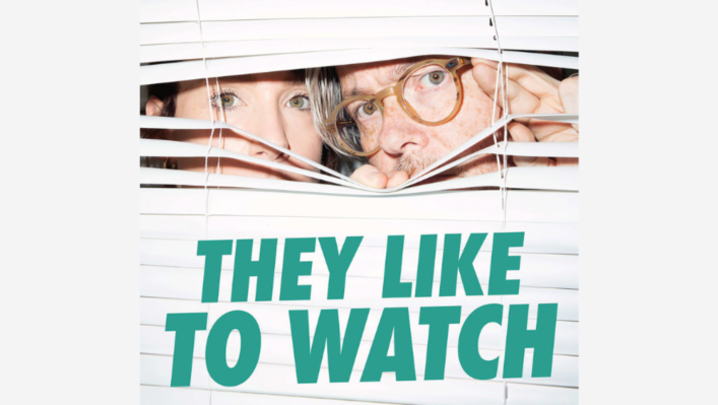Series 3 of the HBO hit is breaking audience records. Caitlin Danaher explores why the despicable Roys are so popular
In August 2020, as the pandemic raged in the US, a tweet by LA-based writer Julia Claire went viral: “Do people understand that if they don’t wear their masks and physically distance, we’re never going to get a third season of Succession???”
Now, after a two-year delay, HBO’s hit show has finally returned with all the familial backstabbing, billion-dollar machinations and poetic profanity we have come to love from the media magnate Logan Roy and his squabbling, super-rich children.
If some thought the proliferation of warm, big-hearted shows over lockdown, such as Schitt’s Creek and Ted Lasso, signalled a cultural shift towards kindness and sincerity, then the record-breaking viewing figures for Succession’s third series offer a swift refutation.
Malice and megalomania are back on the menu, as Waystar’s doom-mongering CFO Karl says: “the full Baskin-Robbins 31 flavours of fuck”.
One only has to look at the rock-concert reception the series 3 premiere received at the London Film Festival to see that Succession, created by British writer Jesse Armstrong (co-writer of Peep Show), has developed into a cultural phenomenon. So, as the TV juggernaut hurtles towards its series mid-point, why are we still so enamoured by these despicably entitled people doing terrible things to each other?
“[Armstrong] has these enormous titans who rule the world and then he makes them fucked up, hopeless, fallible human beings like the rest of us,” says Jane Tranter, co-founder of Bad Wolf, who is an executive producer and a self-described “chief cheerleader” for the show. “It’s sort of Shakespearean; you learn about the nature of the human condition from characters who are way, way above where most of us live our lives. That combination of enormous power and enormous weakness makes for great viewing.”
She adds: “Not only do you have these headline, iconic television moments, you just have such nuance and bravura and daring and delicacy to the way these characters are put on screen.”
Dubbed a “super-producer” in the industry, Tranter has been in countless writers rooms over the years, but she has never witnessed one as well run as Armstrong’s. “To be clear,” she says, “it is not a democracy, but every voice is heard, and Jesse is a brilliant listener, which lots of people who run writers rooms aren’t.”
Worlds away from the outrageous flash and scale of the Roys’ lifestyles, with their superyachts, Hampton palaces and Manhattan skyscrapers, Succession was created in an unassuming office space in south London, described by Jeremy Strong (Kendall Roy) as a “squalid little room in Brixton”.
The writing team is a near 50/50 split of British and American writers, handpicked by Armstrong. They come from the worlds of theatre and comedy, and include playwrights Lucy Prebble and Susan Soon He Stanton, comedy writers Tony Roche and Georgia Pritchett (who wrote for Veep and The Thick of It), and Will Tracy, former editor-in-chief of the satirical news website The Onion.
This blend of disciplines proved crucial in nailing Succession’s unique tone, at once a psychological drama and an absurd comedy, which became the blueprint for the series. “An awful lot of work went into finding that tone in editorial on season 1, and that work continued in seasons 2 and 3 in order to ensure that we are keeping what makes Succession “succession-y,” Tranter says. “That biting humanity to it. Serious things are treated lightly, and light things are treated seriously, and it’s all done with a good sloshing of darkness around it.”
“I’ve read the scripts for Jesse’s penultimate episode and finale, and I just sort of look at them and think, ‘How the fuck?"
With characters who have a seemingly clinical aversion to saying what they truly mean, viewers are made to learn Succession’s distinctive lexicon of unrelenting irony. It’s a murky world, where an after-dinner game of “Boar on the Floor” on a corporate away-day is a source of toe-curling horror and humiliation akin to torture, yet huge events such as rocket explosions and Senate testimonies are reduced to the ridiculous.
The series undoubtedly has a particular worldview but Succession is a rare example of a show that truthfully looks at characters without placing any judgement on them. As Tom Wambsgans tells his hapless sidekick Cousin Greg: “This is not fucking Charles Dickens’ world. You don’t go around talking about principles.”
In the absence of a moral centre, the writers can let loose with inventing deliciously acerbic dialogue and depraved psychological character insights that make the show so much fun to watch.

Staff writer Jamie Carragher recalls a particularly hilarious instance where Armstrong’s riffing on a conversation between Roman and Gerri reduced him to tears of laughter. “It was pretty hard labour on the ribs. I feel like that’s some sort of workplace bullying, having to type down this killer dialogue that you’re terrified of losing because it’s making you cry,” he jokes.
But alongside the hysterics is a huge level of hard graft that goes into building the world of the show. Such is the intensity of the research that each season the writers produce a super-document known as “The Meg”, containing up to 300 pages of potential storylines that didn’t quite make the cut. “You do end up going down some routes that, on reflection, go nowhere, but they’re just part of the process,” Carragher admits.
From prison consultants for white-collar criminals to cruise-line health and safety policy, all the writers are given different assignments to become mini experts in a specific area. No stone is left unturned. “We end up reading a lot of either dry or bizarre business autobiographies and mine them for stories,” says Carragher.
As much as Succession’s dark world resonates with today’s socio-political currents, the writers avoid overtly specific correlations with our fast-changing reality.
“We’re not in the game of predicting what America is going to look like in 12 months’ time when we start writing. I think there’s almost more chance of Succession saying something about the world we live in if the team doesn’t try and stay ahead of the times,” says Carragher. “We talk about the long-established patterns in history and politics of what people do with power. So, as much as Succession is a show about now, it’s also very much about a larger scale of history.”
Indeed, season 2’s explosive finale was steeped in historical literary allusions. As Kendall left Logan’s yacht to become his blood sacrifice with a Judas kiss on the cheek, his shock whistleblowing to the press left viewers reeling at the act of patricide.
Having described that finale as “a masterclass on how to end a series” when it aired, Tranter teases that the ending of the third series is even more accomplished.
“The twist feels so authentically credible and kind of obvious that, of course, that would happen. And yet it’s really surprising, which is a very, very difficult thing to do but, somehow, [Jesse] does it,” she enthuses. “I’ve read the scripts for Jesse’s penultimate episode and finale, and I just sort of look at them and think, ‘How the fuck?’ So, yes, I said that about season 2 and I believe it. But you know what? Season 3 is even better.”
With all the top-secret information that Tranter has about each of the Roy children vying for Logan’s throne, does she have a desired successor?
“Listen, as a mother of twins, there’s no such thing as having a favourite. I love all the Roy siblings,” she says. “But I don’t want any of them to win. I want them all to lose big time.”

